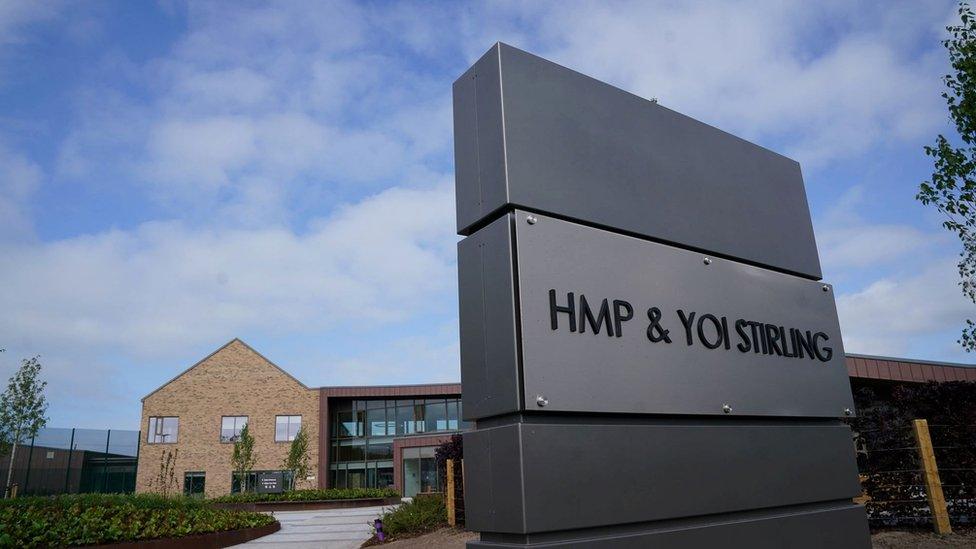Prison overcrowding warning as inmate numbers rise
- Published
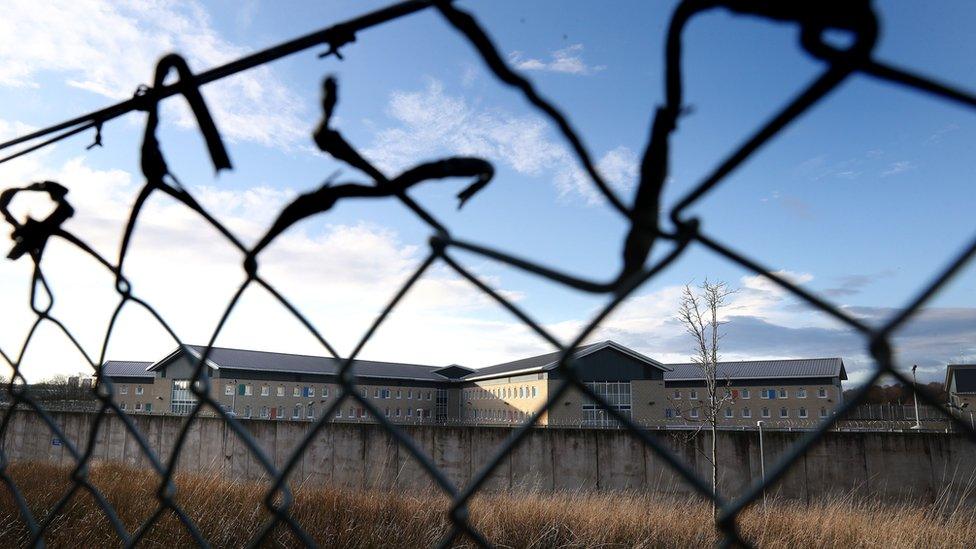
Scotland's overcrowded prison estate includes HMP Low Moss
The chief inspector for Scottish prisons has warned the number of people in custody is projected to soar in the next year.
Wendy Sinclair-Gieben said inmate numbers had fallen during the Covid pandemic - but were on the rise again.
In her annual report, external she said they were likely to go above 8,000 over the coming year.
The Scottish government said it was taking action to reduce the prison population.
Ms Sinclair-Gieben said she had inspected all 15 of Scotland's prisons over the past year, and some progress had been made.
In particular, she singled out improvements in facilities for women, with HMP Stirling opening as a replacement for Cornton Vale, and new community custody units also being introduced.
"Scandinavian prisons are often cited as the model for best practice, but when these new facilities have fully bedded in, Scotland has the potential to lead the way in managing women in custody," she said.

HMP Stirling is a women's prison which has replaced Cornton Vale
She called for continued momentum in the prison replacement programme, and warned it would be a "travesty" if there were any delay in the building of HMP Glasgow and HMP Highland, which will replace ageing, outdated jails at Barlinnie and Inverness.
Ms Sinclair Gieben also raised concern about staffing problems with the prison escort contractor GEOAmey which had led to inmates missing hospital appointments and delays in transfers between jails.
On prisoner numbers, she noted the figure reached 8,000 in February 2019, the highest since 2013, before falling back, particularly during the Covid pandemic.
However, she said the total was now predicted to rise above that level again in the next 12 months, and continue to rise - which would lead to more overcrowding.
"Put simply, we send far too many people to prison for the limited accommodation and resourcing available to achieve rehabilitative change," she said.
She added: "The reason I and my predecessors have focused strongly on overcrowding is that it affects every part of the criminal justice system, in particular the risk to the community.
"If individuals do not have their risks and needs addressed in prison, the rate of recidivism will remain high, and at significant cost to the public purse."
The inspector said it would be a "delight" to see men's prison estates to match the improvements seen in women and children's estates within the next five years.
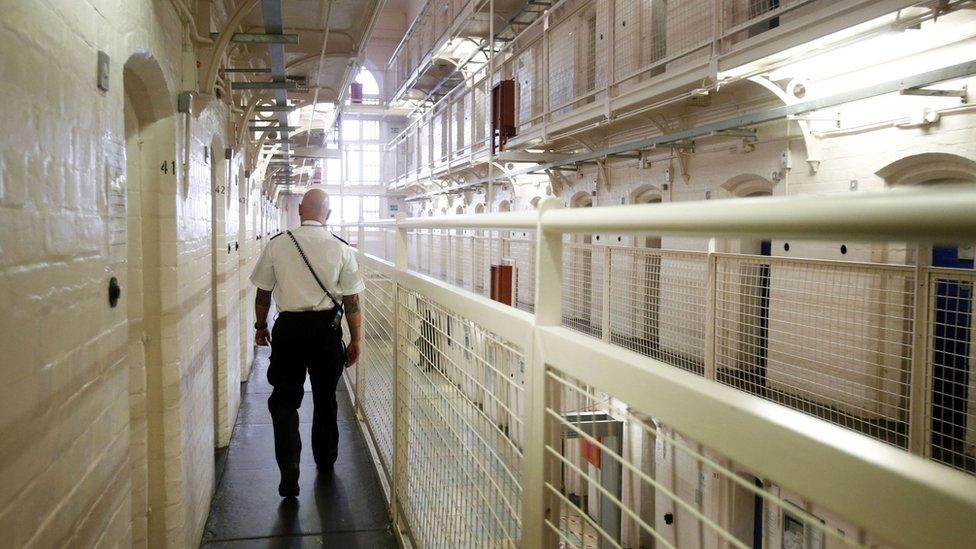
The governor of Barlinnie prison has warned it is so overcrowded and outdated it could suffer a "catastrophic failure" at any time
The Scottish government and the Scottish Sentencing Council have introduced a number of measures in recent years in an attempt to reduce the prison population.
Since 2019 there has been a presumption against sentences of 12 months or less for minor offences, with offenders being dealt with via non-custodial means instead such as community payback orders or fines.
In 2022 new guidelines said people under the age of 25 should only receive a custodial sentence if no other sentence was judged appropriate.
Scottish Conservatives justice spokesman Russell Findlay MSP described the report as "damning", stating it should serve as a "wake-up call for SNP ministers".
He added: "Crumbling Victorian-era prisons, rampant drug use and a lack of basic resources is endangering staff and making rehabilitation impossible, thereby continuing the cycle of crime on our streets.
"Yet this complacent SNP government has no sense of urgency, with the desperately needed Glasgow and Highland prisons already subject to significant delays."
The Scottish government said it welcomed the report "which recognises the improvements made to the female prison estate in the past year".
"While prison is needed for those who pose a risk to public safety, we recognise that the imprisonment rate in Scotland is high and we are taking action to address that," a spokesperson added.
"That includes ongoing work to implement our National Strategy for Community Justice, and protecting investment in community-based interventions which we know are more effective at reducing reoffending than short-term imprisonment.
"The wellbeing, safety and human rights of all those who live in our prisons will continue to be a priority for the Scottish government and the prison service, and we will work with them and other partners to respond to specific issues raised in the report."
- Published4 August 2023
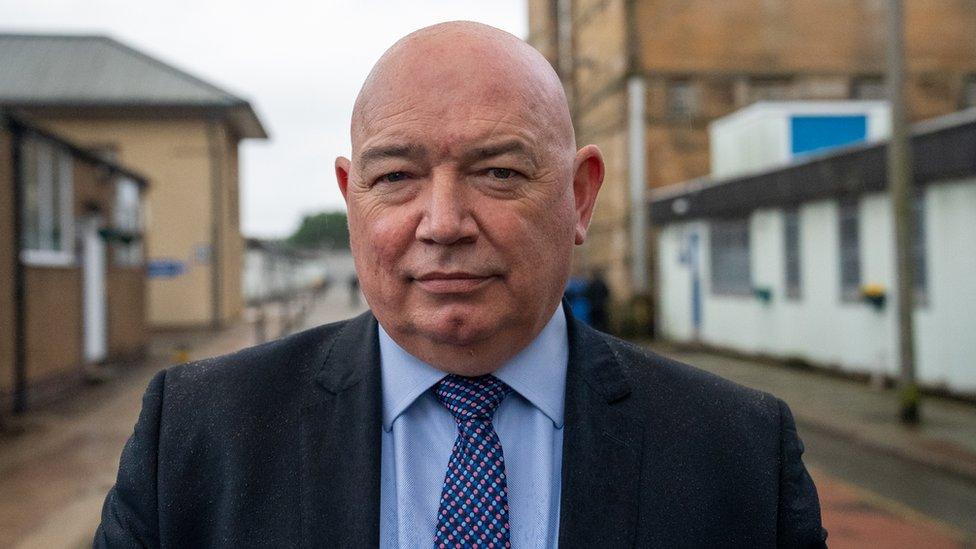
- Published21 July 2023

- Published4 August 2023
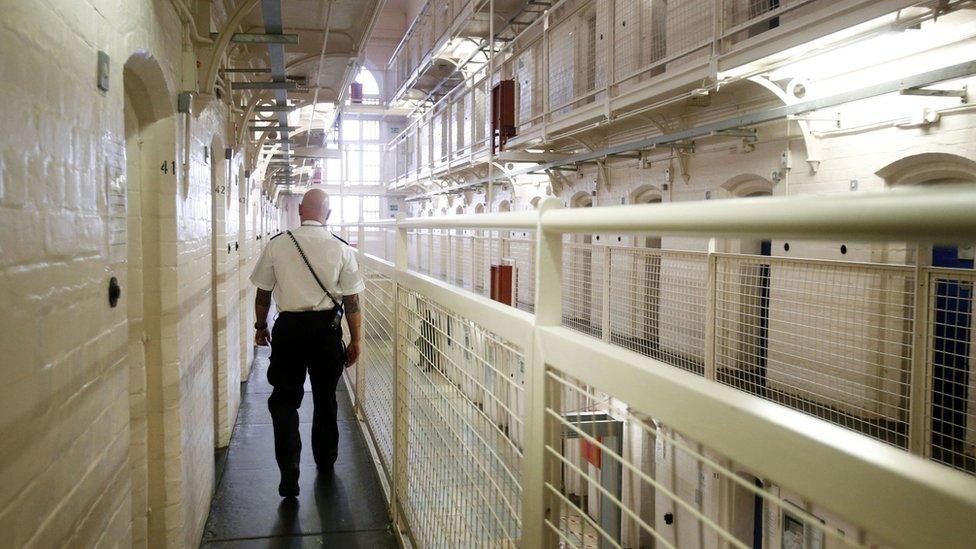
- Published26 May 2023
